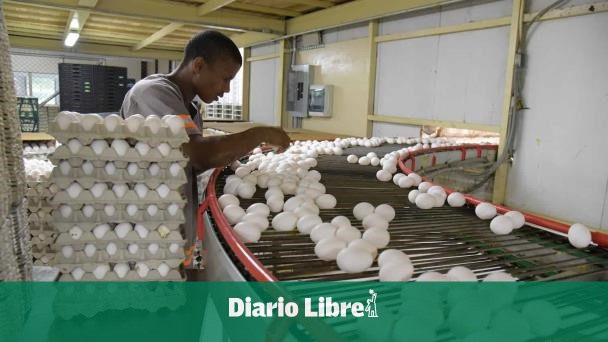The president of the National Association of Egg Producers (Asohuevo), Manuel Escanoassured that the informal export of eggs to Haiti will continue, despite the ban issued yesterday by the Central Government.
Egg producers rejected the measure despite the fact that the Minister of the Presidency, Joel Santos, said he had reached a compromise.
“With the decision made by the Government, the black and informal market is encouraged to continue selling products across the river to Haiti,” evading security mechanisms and regulations for trade with that nation.
The representative of table egg producers explained that 20% of the eight million daily units produced in the country go to the Haitian market formally and informally. Situation that he, he indicates, is known to the authorities. “Informal exports will continue because the Government knows that this market is developed by the river.” What is expected with the measure is a deterioration of the sector, he said.
20% production
asohuevos rejected and requested that the provision be reversed, taking into account that Haiti is the only foreign marketing market where 20% of the country’s table egg production is sent, which exceeds 8 million units per day.
Escaño described as “misguided, unfair and outrageous” the resolution issued by the General Directorate of Customs (DGA) in which the ban on the export of eggs is established, effective as of 6:00 p.m. on Friday the 6th and until January 21.
For this resolution it was necessary to confront the productive sectors that tried to avoid it, the Minister of the Presidency himself revealed yesterday when he made the announcement. He said that there were “conversations with the productive sectors, trying to contain this decision, but, finally, starting tomorrow (today), at 6 in the afternoon, for 15 days (exports) would be suspended.”
He assured that the commitment was achieved with the country’s egg sector to keep the local market supplied to prevent prices from rising significantly.
The official reiterated that the measure is temporary and that it will be reviewed every 15 days.
Details
“The main objective is to try to rebalance demand and supply to avoid a significant increase in prices in the egg sector,” added the minister.
The current price of a 12-unit carton of eggs is approximately 94 pesos in supermarkets and 115 pesos in grocery stores.
The cause of the problem would have been that production in Haiti is “dismantled,” according to Abinader, who stated that his priority will be to protect the Dominican consumer.
Manuel Escaño warned that large losses will occur for small and medium producers. “With this measure, what they are doing is hitting the sector, to put it in danger that it could even disappear,” he warned. He explained that, currently, the cost of farmed eggs is 5.50 pesos per unit and is sold between 7 and 8 pesos in grocery stores and supermarkets. The carton of 30 units exceeds 170 pesos. He said that the 15 days that the measure will last is enough time to affect the market and bankrupt small producers. He assured that the measure was not agreed with the sector.















